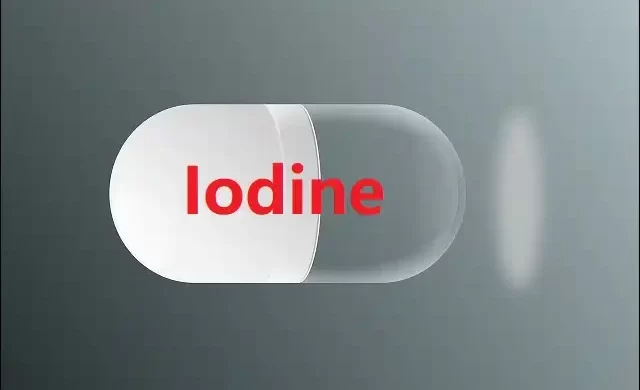Do you need to take iodine tablets when Japan discharges wastewater?
- Normal Liver Cells Found to Promote Cancer Metastasis to the Liver
- Nearly 80% Complete Remission: Breakthrough in ADC Anti-Tumor Treatment
- Vaccination Against Common Diseases May Prevent Dementia!
- New Alzheimer’s Disease (AD) Diagnosis and Staging Criteria
- Breakthrough in Alzheimer’s Disease: New Nasal Spray Halts Cognitive Decline by Targeting Toxic Protein
- Can the Tap Water at the Paris Olympics be Drunk Directly?
Do you need to take iodine tablets when Japan discharges wastewater?
- Should China be held legally responsible for the US’s $18 trillion COVID losses?
- CT Radiation Exposure Linked to Blood Cancer in Children and Adolescents
- FDA has mandated a top-level black box warning for all marketed CAR-T therapies
- Can people with high blood pressure eat peanuts?
- What is the difference between dopamine and dobutamine?
- How long can the patient live after heart stent surgery?
Do you need to take Iodine tablets when Japan discharges wastewater?
Japan has faced issues related to nuclear radiation leaks, including the Fukushima nuclear accident.
In such cases, people may need to take Iodine tablets to reduce the risk of thyroid absorption of radioactive Iodine.
Iodine tablets can saturate the thyroid and reduce the absorption of radioactive Iodine.
However, this is typically a measure to consider after a nuclear radiation incident has occurred.
As for general wastewater discharge, Iodine tablets are usually not necessary. Wastewater discharge should be treated and purified according to environmental regulations to ensure there is no harm to the environment and human health.
If you are concerned about pollution or radioactive substances, it’s best to consult with local environmental protection agencies or medical professionals for relevant advice.

Can Iodine tablets be used to prevent radiation?
Yes, Iodine tablets can be used to prevent radiation, but they must contain stable isotopes of Iodine, not radioactive Iodine-131.
Radioactive Iodine-131 is a source of nuclear radiation as it gets absorbed by the thyroid, increasing the risk of thyroid cancer.
Taking stable Iodine can saturate the thyroid, reducing the absorption of radioactive Iodine, thus lowering the potential danger of radiation.
In the case of nuclear radiation incidents or the threat of nuclear war, people might be advised to take stable Iodine tablets.
This is typically an emergency protective measure and should be done under the guidance of government authorities or healthcare professionals.
It’s important not to self-administer Iodine tablets as excessive Iodine intake can have adverse health effects.
It should be emphasized that in general situations, routine use of Iodine tablets for radiation prevention is not necessary.
Only in specific circumstances, such as the threat of nuclear radiation, would Iodine tablets be considered as a radiation protective measure.
In what nuclear radiation situations should Iodine tablets be taken?
Taking Iodine tablets is typically considered in situations involving nuclear radiation accidents or the threat of nuclear war. Specific situations include:
Nuclear Power Plant Accidents:
In the event of a nuclear power plant accident, especially those involving the release of radioactive Iodine-131, people may be advised to take Iodine tablets.
This is because Iodine-131 can be absorbed by the thyroid, increasing the risk of thyroid cancer. Taking stable Iodine can saturate the thyroid, reducing the absorption of radioactive Iodine.
Threat of Nuclear War:
In the event of a nuclear war outbreak, nuclear explosions release a significant amount of radioactive substances, including radioactive Iodine.
People may be advised to take Iodine tablets to reduce the risk of thyroid absorption of radioactive Iodine.
Nuclear Material Leaks:
Any accidents involving nuclear material leaks or radiation contamination may warrant consideration for taking Iodine tablets.
In these situations, taking Iodine tablets is seen as an emergency protective measure aimed at reducing the risk of thyroid absorption of radioactive Iodine.
However, it must be emphasized that Iodine tablets should only be used under the guidance of government authorities or healthcare professionals, as incorrect dosages can have adverse health effects.
In general circumstances, routine use of Iodine tablets for radiation prevention is not necessary.
Do you need to take Iodine tablets when Japan discharges wastewater?
(source:internet, reference only)
Disclaimer of medicaltrend.org
Important Note: The information provided is for informational purposes only and should not be considered as medical advice.



